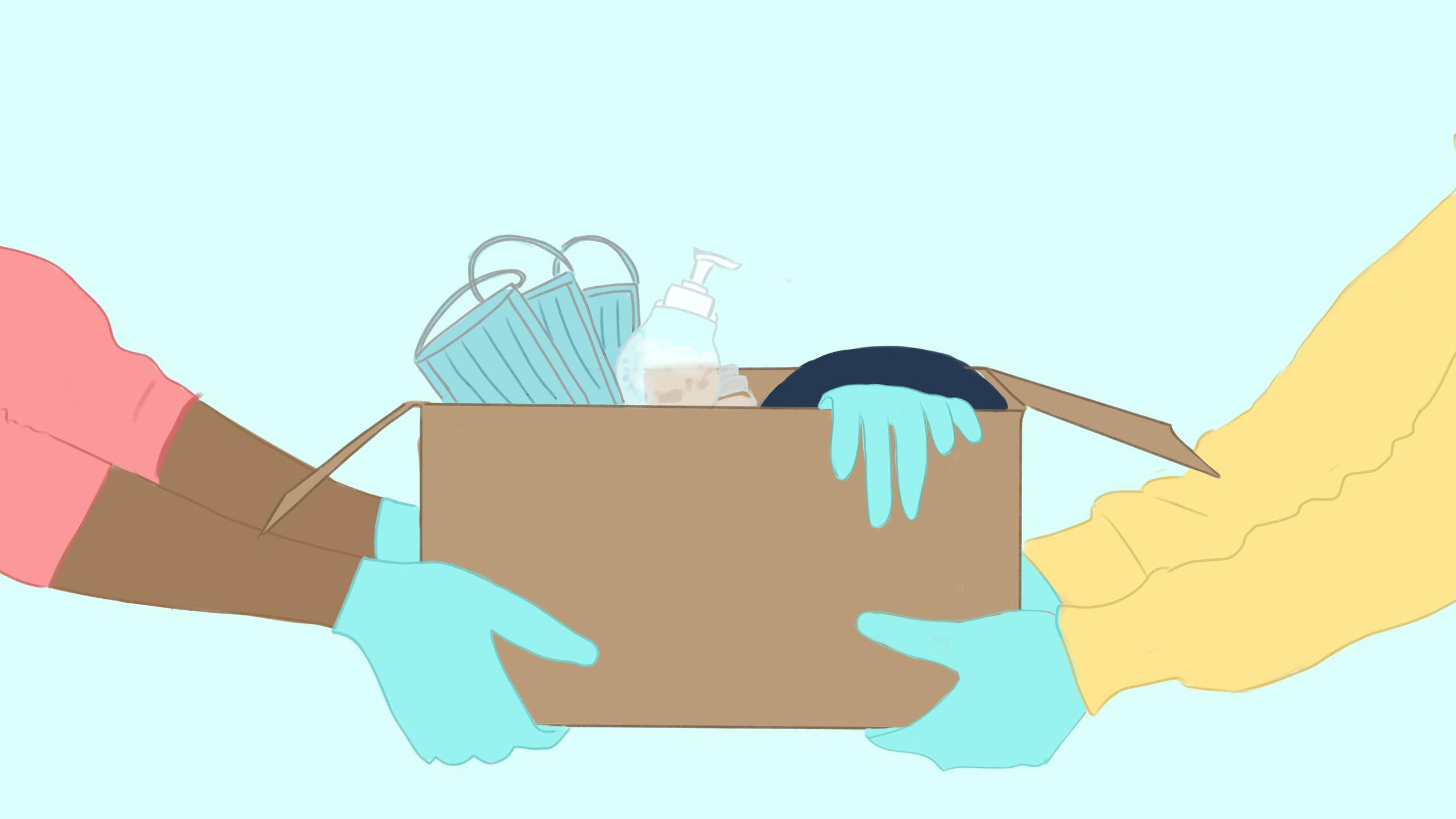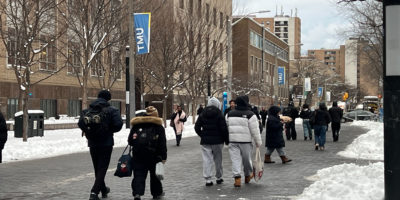By Sarah Tomlinson
Fourth-year nursing student Jamie Patel has an insider perspective on the needs of people experiencing homelessness through her work with the Inner City Health Associates (ICHA) in Toronto during the COVID-19 pandemic.
Patel has been working for ICHA since May. The association consists of more than 90 physicians working in more than 50 shelters and drop-ins across the city that provide primary, mental health and palliative care to the city’s homeless community.
“It was originally a volunteer position that involved risk [classifying] individuals experiencing homelessness in the shelter system, based on their risk factors for contracting COVID-19 and suffering serious illness,” she said.
According to a report conducted by the Canadian Medical Association Journal, individuals experiencing homelessness are at increased risk of being infected with severe acute respiratory syndrome due to their lack of safe housing.
Jennifer Ko, a former Ryerson photography preservation and collections management student, said although the pandemic has been hard for everyone, she feels people experiencing homelessness have struggled more than others could imagine. Ko is now a clinical nurse educator at ICHA.
“People [experiencing homelessness] didn’t have access to safe places in March when it was cold because all of those public spaces were closed. People didn’t have access to bathrooms, they didn’t have access to Wi-Fi,” she said. “There are infinite numbers of repercussions for people who are homeless that were way more impactful than for some folks with different kinds of privileges.”
In addition, Lucy Doan, a nurse practitioner for ICHA’s Enhanced Shelter Support Program, said accessing primary care was a struggle for people experiencing homelessness long before the start of the pandemic, due to issues like not having an address, ID or a cell phone to access virtual care.
In 2016, it was estimated that 235,000 Canadians experience homelessness every year. In 2013, a study released by the homeless hub determined homeless people in Toronto’s represented the largest homeless population in Canada. Cities such as Red Deer, Alta. and Calgary ranked higher than Toronto per capita.
Cathy Crowe, a street nurse and public affiliate in Ryerson’s politics department, said some of the efforts previously made by other organizations and community centres have paved the way for the ICHA’s work.
The Advocacy Centre for Tenants Ontario, the Black Legal Action Centre and the HIV & AIDS Legal Clinic Ontario helped earn the community 1,200 hotel rooms after they formed a legal coalition to take the city to court, “Because they were not physically distancing the shelter beds, cots and mats,” she said. The coalition went to court on Oct. 1 to argue that the city has yet to ensure two-metre physical distancing.
“COVID-19 is a wake-up call to the city to do right by its homeless population….We need a revolution in how we provide shelter and support—we need one room per person,” wrote Crowe in an essay for Toronto Life. “To give each person their own room, we need to find some 8,000 new homes, and sooner rather than later.”
ICHA’s work in Toronto
The greatest component of the ICHA’s COVID-19 model is their recovery hotels.
“We knew that there was going to need to be a significant amount of space built to isolate people to keep them safe,” said Andrew Bond, ICHA’S medical doctor. “Both in terms of protecting others if they do get infected but also supporting them in that time while they’re there.”
The recovery hotels have served about 1,300 people since the start of the pandemic, Bond said.
ICHA is also providing healthcare at encampments and in shelters, Bond said.
Since the summer, several encampment communities have been established in various Toronto parks. 14 people living in encampments and two activist organizations are currently seeking an interim order to allow the individuals experiencing homelessness to stay in Toronto parks until a constitutional challenge of a city bylaw is heard, CBC reported. The bylaw bans living or camping in parks after midnight.
In court, the group testified that it feels safer to live in an encampment than a shelter or one of the hotels due to COVID-19, wrote CBC.
Ko said the encampments were created due to the lack of space in shelters. “There’s no capacity for people to actually isolate, even with additional capacity in the shelter system. There are no beds available for anyone and it’s not even winter yet,” she said.
However, she said many people in encampments in parks have been forced to move to the hotels due to complaints from neighbouring residents.
ICHA programs such as the COVID-Alert Risk Evaluation and Management (CARE) project offer clients a COVID-Alert bracelet to identify their risk.
CARE also assesses the risk of COVID-related hospitalization and intensive care unit admission using ICHA health records, Shelter Management Information System data, and in-person assessments.
Patel said with the number of cases rising, even more attention needs to be given to the homeless community.
“This is a huge concern not only for those who are homeless but also as our healthcare system is already overstretched and there may not be enough resources available to ensure that the best care possible is available,” she said.
In September, the federal Liberals pledged $1 billion for cities to buy motels and hotels to create affordable housing units and provide shelter to vulnerable populations, including those at immediate risk of becoming homeless.












Alice rawecku
Well done, Sarah. Bringing awareness to the forefront of what is happening with vulnerable people who have little voice in trying to be treated equally ,is a start. Hopefully, your article will reach the politicians who can make a positive change for the homeless citizens ,who deserve attention in these difficult times .